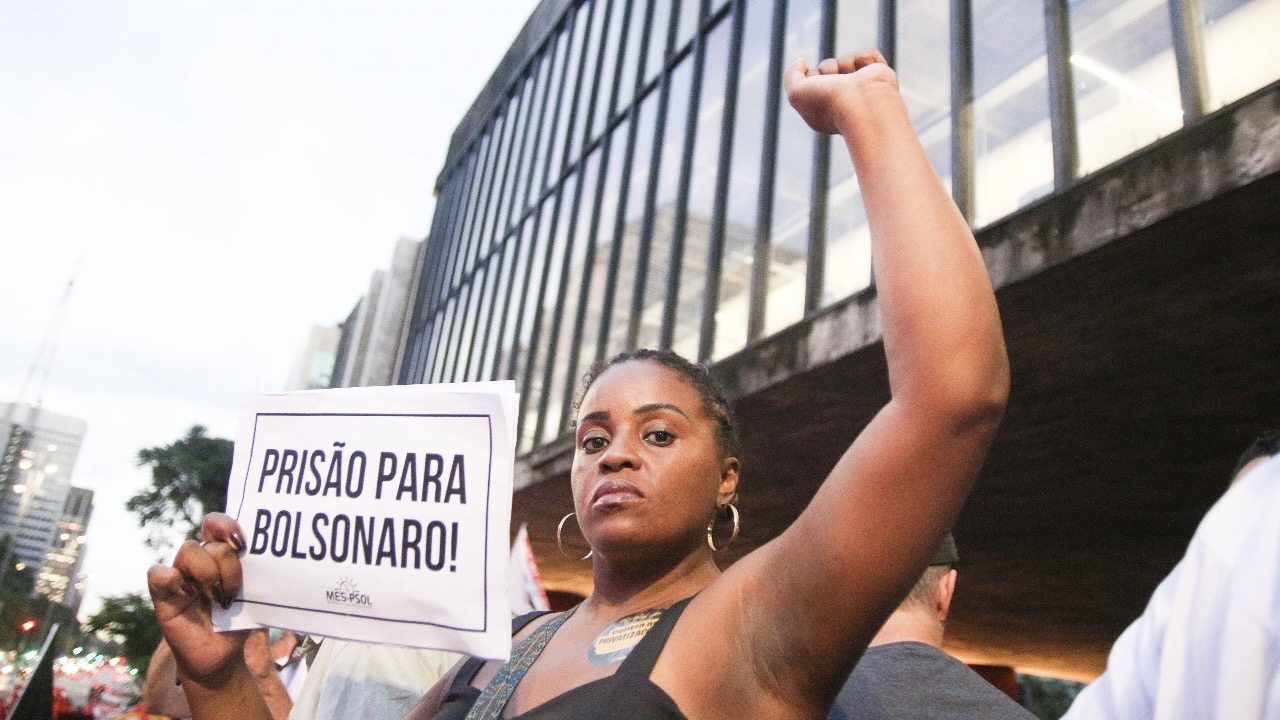It was still early afternoon on January 8, 2023, a Sunday, when a crowd of around 4,000 Bolsonarists walked towards Praça dos Três Poderes in an attempt to trigger a coup. They did not accept the results of the elections, in which Luiz Inácio Lula da Silva of the Workers’ Party of Brazil emerged victorious.
On that day, a year ago, hundreds of people were arrested for participating in or having some connection to the attacks. The professor of Political Science at Pontifical Catholic University of São Paulo and the Getulio Vargas Foundation, Francisco Fonseca, stated that the attacks in Brasília demonstrated what the extreme right is capable of.
“The extreme right supports coups, and January 8, 2023 showed this. There was, yes, an attempted coup. Jair Bolsonaro tried to carry out numerous coups throughout his term, but the final one was on January 8. A coup poorly arranged, including the old people, the WhatsApp uncles, as they became known. But it also involved military sectors, large agribusiness financing, agribusiness sectors, among others,” says the professor.
The STF continues with the trials of those involved. Thirty defendants have already been sentenced by the court with sentences ranging from 3 to 17 years in prison for the crimes of violent abolition of the Democratic Rule of Law, coup d’état, armed criminal association, qualified damage, and deterioration of listed property. Mayra Goulart, professor of Political Science at UFRJ, comments on the results of the trials.
“The institutions, although very late, managed to get the message across. They managed to get the message across that, in this society, there is a commitment to democracy and the rule of law. And, attempts to suppress the rule of law will be punished. This caused surprise for those involved in January 8 because they do not have the profile of those who generally suffer from the force of the State, from the punitive apparatus of the State. So, they thought that there would be no consequences. And the message is this: even if you are a white person, you will feel the effects of the law when you violate the rule of law,” warns Mayra.
The UFRJ professor also argues that Bolsonaro was already attacking the Democratic Rule of Law while exercising his mandate as a federal deputy, and that he continued to do this after becoming president, further influencing his fanatical followers.
“There was leniency, a cover-up, a slowness in punishing Bolsonaro as a deputy. When he assumes the presidency, he continues in this same vein, with anti-state, anti-institution speeches and was not punished for it. He even went so far as to speak out against the ministers of the Supreme Court saying that they would not follow their decisions. He organized a September 7th [manifestation] that put institutional security at risk and nothing was done about it. So, I think that the institutions are in fact giving the message, but this is being done very late,” she commented.
In 2023, Bolsonaro’s coup plot began to be punished. In three different decisions, the Superior Electoral Court sentenced the former president to be ineligible for 8 years. The sentences are not cumulative, that is, Bolsonaro is ineligible only until 2030. In two of the convictions, the TSE ministers understood that the former president used the Independence celebrations in 2022 to further his electoral campaign.
In another previous decision, the Electoral Court had already considered that Bolsonaro committed abuse of political power in a meeting with ambassadors at Palácio da Alvorada. At the time, the then president made accusations without evidence against the electronic voting system. Francisco Fonseca argues that Bolsonaro still deserves to be punished more rigorously and does not believe that there is a risk of new attacks like those that occurred on January 8 last year.
“The arrest of Jair Bolsonaro is missing. Because he is the architect of all this, the leader of it all. He not only attacked democracy throughout his period in government, but he continues to try. I don’t believe it could happen again . Now, in an episodic way, as happened on January 8, trying to cut electricity, causing a major blackout, this can still happen. Risks exist, but Brazilian society is much more mobilized than it has been up until that moment,” explains Fonseca.
The acts and oversights of January 8 were discussed and investigated by the Joint Parliamentary Commission of Inquiry established in Congress. The final report approved by the CPMI called for the indictment of 61 people, including Jair Bolsonaro, and was sent to the Public Ministry. Remembering the date of the coup attacks with symbolic acts, according to the coordinator of the Frente Brasil Popular, Raimundo Bonfim, is important to reaffirm democracy, as was promptly done in the demonstrations held the day after the attempted coup, last year.
“There were large street mobilizations in the main capitals of the country, especially in the city of São Paulo, but also in Brasília, Rio de Janeiro, Belo Horizonte, several capitals in the Northeast. So, it was fundamental because society and popular movements immediately demonstrated that they would not accept any coup attempt. This was certainly fundamental in stopping the continuation of the coup on that January 8,” argues Raimundo.





